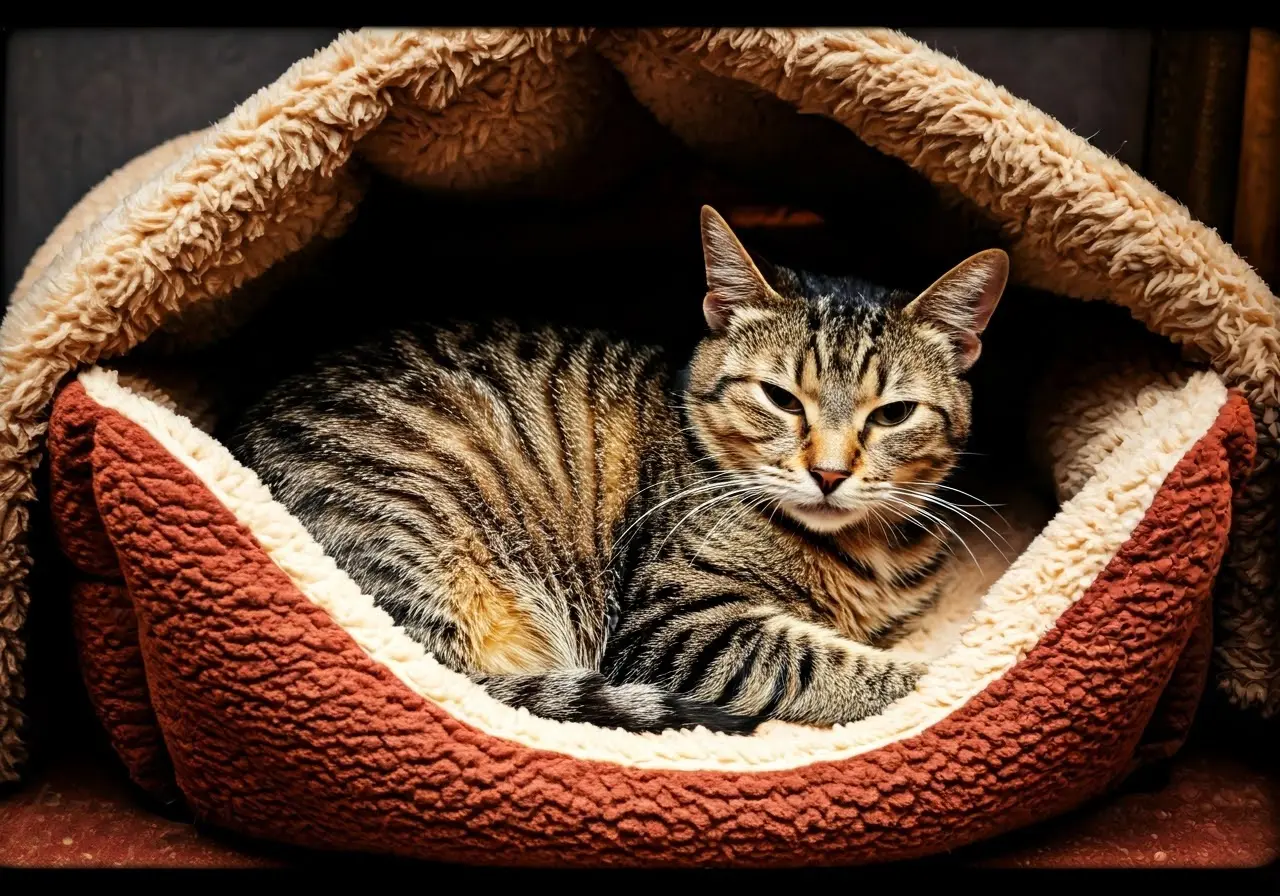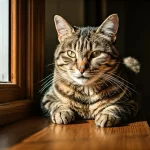Looking after a senior cat can be a rewarding experience, filled with affection and companionship. As cats age, their needs and behaviors shift, and it’s important to adapt our care routines to ensure they remain comfortable and content in their golden years. Here, we’ll explore essential tips for maintaining the health and happiness of your senior feline friend.
Understanding the Aging Process in Cats
Just like humans, cats go through a natural aging process. Their metabolism slows down, they might face issues like arthritis and their behavior might change. Recognizing these changes helps in providing the right care. As cats enter their senior stage, typically around seven to ten years of age, they might display physical and behavioral shifts that signal they need a little more attention and understanding. Those once boundless bursts of energy might dwindle, giving way to a preference for longer naps and quieter adventures. This transition isn’t just a quirk of nature—it’s a signal to cat owners that adaptation in care routines is crucial.
Among the special needs of senior cats are increased attention to their mobility and comfort. Arthritis and decreased muscle mass can make simple actions, like jumping onto a windowsill or climbing stairs, more challenging and uncomfortable. It’s essential to ease these discomforts with adaptations such as soft bedding and ramps. By understanding these elements of the aging process, caregivers can foster a nurturing environment that caters to their cat’s evolving needs, ensuring those golden years are as fulfilling and enjoyable as possible.
Adjusting Your Cat’s Diet
Senior cats often benefit from a diet tailored to their age. Special senior cat food provides the right balance of nutrients to support their health. Focus on foods rich in protein and low in fat, and consider incorporating supplements if necessary. As highlighted in Cat Stage Diets, adjusting meals according to life stage is crucial. Older cats can experience decreased kidney function and might need increased levels of moisture in their diets, which can be provided through wet food or adding broth to meals. Besides, senior cats may require more easily digestible proteins and adjusted calorie counts to prevent obesity or muscle mass loss.
Hydration cannot be overstressed, as it is vital for preventing common kidney issues in older felines. Providing water from multiple sources and including water-heavy foods like wet canned varieties can encourage better intake. Flavorful broths may also be a good addition to entice your cat to lap up a bit more hydration. Every cat is different, so regular consultation with a vet can tailor this dietary approach according to your cat’s unique needs. Making these adjustments not only impacts their physical health but can significantly influence their energy levels and overall quality of life.
Regular Veterinary Visits and Health Monitoring
Frequent vet check-ups are crucial for senior cats to catch any health issues early. Blood tests, dental care, and vaccination updates play a vital role in maintaining their well-being. According to Cornell Veterinary Medicine, an annual comprehensive geriatric exam for healthy cats is ideal, but more frequent checks, like semi-annual visits, can be beneficial as they age. These check-ups offer the opportunity to monitor changes, discuss diet, and address any concerns from weight fluctuations to dental health, ensuring your feline companion is living comfortably.
At home, routine observations are key in spotting potential issues early. Keeping a watchful eye on your cat’s behavior, coat condition, and litter habits can clue you into health changes before they become serious problems. Reporting these observations to your vet during check-ups can give them a clearer picture of your cat’s health, aiding in better management or prevention of age-related health declines. Regular veterinary care not only improves longevity but greatly preserves the quality of life, providing peace of mind to both you and your beloved pet.
Creating a Comfortable Home Environment
Ensure your home is safe and comfortable for your senior cat. Soft bedding, easy access to food, and secure, quiet resting places can help reduce stress. Consider adding cozy, draft-free spaces where your cat can retreat. Elevated ramps or steps to their favorite resting spots will minimize joint strain. According to Emily Levine, DVM, these small environmental nuances are key, especially as older cats may develop arthritis.
Integrate nightlights for navigating during the night, particularly for cats experiencing vision impairment. A cat’s home should be a sanctuary of calm and reassurance, and by structuring these aspects thoughtfully, you are not only enhancing comfort but also enriching their overall sense of security. Keep in mind that older cats often appreciate consistency, so maintaining their routine and environment can reduce stress and support their mental well-being.
Encouraging Gentle Exercise and Mental Stimulation
While older cats may not be as frisky as kittens, they still need exercise and stimulation. Interactive toys, gentle play, and varying their environment can keep them active and engaged. Using interactive cat play benefits can be crucial in ensuring they stay mentally and physically healthy. These toys can stimulate their natural hunting instincts and provide gentle exercise that won’t strain their old joints.
Apart from physical exercise, enriching their environment with puzzle feeders or treat-dispensing toys can provide mental stimulation and keep their minds sharp. In essence, quality interactions rather than quantity make a world of difference. Interactive playtime and puzzle-solving mimic their natural hunting routines and offer satisfying engagement that combats lethargy and boredom. Encouraging them to gently stretch and play each day is critical in supporting mobility and heart health without overexertion.
Monitoring Behavioral Changes
It’s important to pay attention to any changes in your cat’s behavior. Increased vocalization, litter box issues, or changes in grooming habits can signal health problems that need addressing. Understanding and interpreting these shifts can help in managing their overall well-being. The key is to ensure that any change in behavior is taken seriously, as these signals often point to underlying health conditions, not just signs of aging.
Engage with resources like Understanding Behavioral Changes in Senior Cats to get a richer understanding of these behavioral shifts. Changes in sleeping patterns or increased restlessness may suggest situational anxiety or cognitive decline, conditions that can be eased with simple adjustments. Be proactive in responding to new behaviors by consulting with your vet or considering environmental adjustments to alleviate any discomforts. Early intervention enhances the quality of their life, allowing your senior cat to thrive despite their years.
Cherishing Every Moment with Your Senior Cat
Incorporating these senior cat care tips into your routine can make a significant difference in your furry friend’s well-being. By paying close attention to their evolving needs and providing them with love and care, your senior cat can enjoy a happy and healthy life. Remember, the journey with your aging cat can be full of delight and deepening bonds.

















